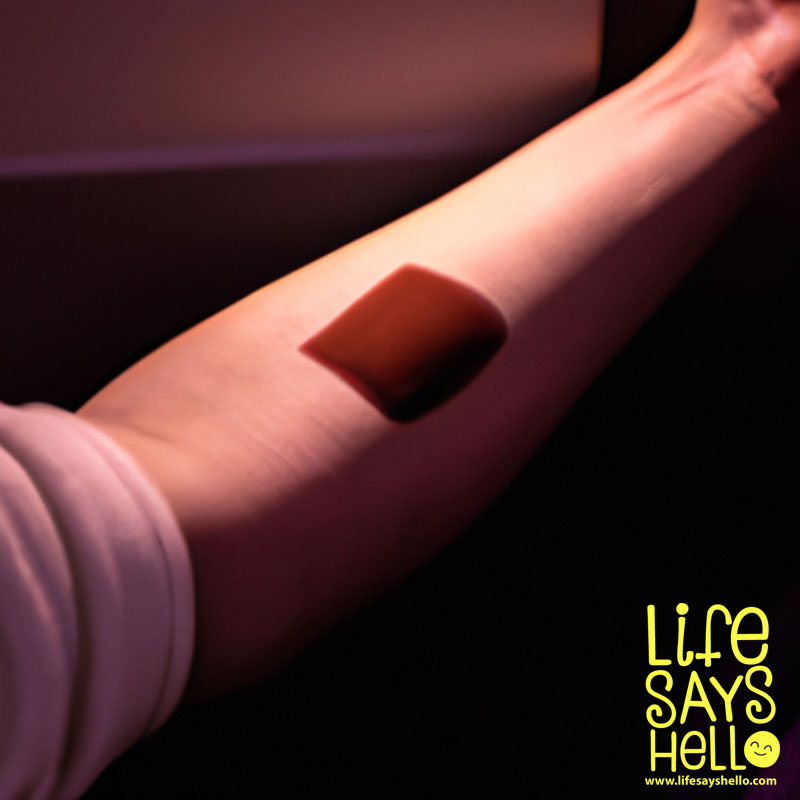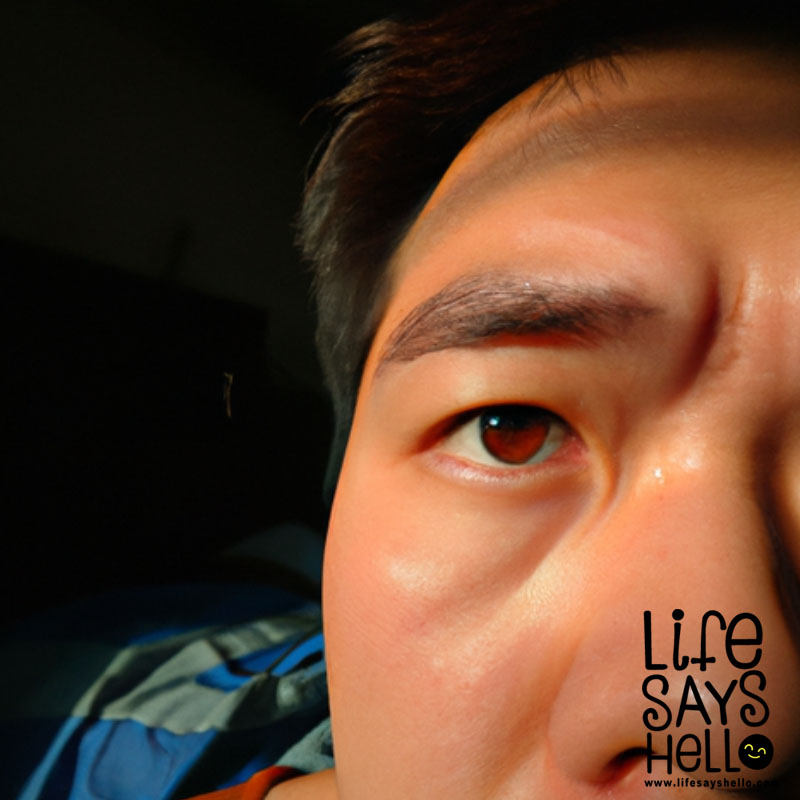Why Do You Talk in Your Sleep? The Science Behind Somniloquy and How to Reduce Nighttime Chatter

Do you wake up some mornings wondering why your partner is annoyed with you for something you said the night before? You may be one of the many people who talks in their sleep without realizing it.
Sleep talking, also known as somniloquy, is an incredibly common phenomenon that affects people of all ages. Up to 66% of young children and 5% of adults are believed to regularly talk during their sleep. But even if you don't have full-on conversations with dream characters, most people have probably muttered a few nonsensical words or phrases while dozing off at some point.
So what's the deal with sleep talking? Is it something to worry about or just a harmless quirk? I'll cover the science behind this parasomnia, look at some of the potential causes, discuss when it could signal an underlying health issue, and provide tips to keep the nighttime chatter to a minimum. Let's dive in!
What Is Sleep Talking and What Does It Sound Like?
Somniloquy refers to talking aloud while asleep. It can occur during any stage of sleep, but is most common during REM sleep when dreaming is frequent.
Sleep talking can involve whispering, mumbling, shouting, or speaking very clearly and loudly. The speech may sound like gibberish or nonsensical ramblings. Other times, it can involve lengthy dialogues where the sleeper appears to be having real conversations with dream characters. Most sleep talking episodes last only a few seconds or minutes, but some episodes can go on for 30 minutes or longer.
Here are some examples of the kinds of phrases and sentences people commonly utter during bouts of sleep talking:
- Whispered nonsense or babbling
- Mumbling an indistinguishable jumble of words
- Talking loudly as if awake (shouting, screaming, crying out)
- Laughing, grunting, mumbling angry words
- Saying short simple phrases like "No, don't do that"
- Carrying on a conversation with dream characters
- Speaking coherently about daily life, interests, or concerns
- Talking about recent real-life events as if they're happening again
- Reciting memorized information (e.g. lyrics, lines from a movie or book, a speech)
Sleep talking can be completely out of character too. Even the most soft-spoken people may yell, scream, or curse in their sleep while not exhibiting such behavior during waking hours.
What Causes Somniloquy?
While sleep specialists are still researching the exact causes of sleep talking, these are some of the main factors believed to contribute to nighttime chatter:
Genetics
Studies show sleep talking often runs in families. Having a parent or sibling who talks in their sleep makes you significantly more likely to develop the condition. Genetics that contribute to sleep disorders or irregular REM cycles may predispose some individuals to somniloquy.
Stress
High levels of stress and anxiety can trigger sleep talking. Significant life changes or pressures make some people more likely to talk aloud during sleep.
Other Mental Health Conditions
Sleep talking has been associated with mental health issues like depression, anxiety disorders, and PTSD. The sleep disturbances linked to these conditions may manifest as sleep talking.
Medications
Certain prescription medications are linked to increased sleep talking. These include antidepressants, anxiety medications, beta blockers, and stimulant ADHD medications.
Sleep Deprivation
Lack of quality sleep on a regular basis can increase the chances of speaking out during sleep. Fatigue lowers the threshold for parasomnias.
Alcohol
Drinking alcohol before bed is known to exacerbate sleep talking in those prone to it. Alcohol affects REM sleep cycles.
Fevers
Having a fever or sickness often leads to vivid dreams and a greater chance of vocalizations during sleep.
Sleep Disorders
Conditions like sleep apnea, restless leg syndrome, night terrors, and sleepwalking are associated with a higher incidence of sleep talking.
As you can see, there are a wide variety of factors that may explain why someone talks in their sleep on occasion or does so frequently. However, most experts agree that sleep talking is primarily genetic in origin.
When Is Sleep Talking Serious?
For the vast majority of people, sleep talking is harmless and does not indicate any underlying medical condition. However, in some cases, chronic and severe sleep talking may require further evaluation.
Signs that somniloquy needs medical attention include:
- Disrupting the sleep of a bed partner almost every night
- Occurring along with other vocal symptoms like screaming or crying out
- Causing exhaustion, daytime sleepiness, or mood changes
- Remaining frequent and severe despite good sleep hygiene
- Indicating violent, angry, or traumatic dreams
If you experience any of the above, it's a good idea to consult your doctor or a sleep specialist. They can check for issues like sleep apnea, night terrors, REM sleep behavior disorder, and mental health conditions. Treating any underlying problem causing sleep disruptions should resolve troubling sleep talking episodes.
Tips to Reduce Sleep Talking
While somniloquy itself is not dangerous for most, it can negatively impact a bed partner. Loud and frequent sleep talking can disrupt their rest. And some people are embarrassed about what they say during sleep talking sessions.
If you want to reduce sleep talking, try these tips:
Stick to a Regular Sleep Schedule
Get on a regular sleep-wake cycle and aim for 7-9 hours of sleep per night. Having a consistent bedtime and waking time helps regulate your circadian rhythm which promotes higher quality sleep. Irregular sleep exacerbates parasomnias like sleep talking.
Limit Alcohol and Medications That Disrupt Sleep
Avoid drinking alcohol 4-6 hours before bedtime as it can increase fragmented REM sleep. Talk to your doctor about switching medications if any prescribed drugs you take are known to cause sleep disruptions.
Reduce Stress and Anxiety
Finding healthy ways to manage life stressors can minimize sleep talking episodes. Try yoga, meditation, journaling, or speaking to a therapist. Getting anxieties off your chest before bed can prevent stress manifesting as sleep talking.
Use White Noise or Earplugs
If your sleep talking disturbs your partner, consider using a white noise machine or having them wear earplugs to muffle the noise. These tools allow them to still get quality rest.
Reassure Your Partner
If your partner is worried about things you say during sleep talking, reassure them that somniloquy is meaningless and does not reflect your waking thoughts, feelings, or behaviors.
Keep a Sleep Diary
Note when sleep talking occurs and any potential triggers like alcohol, fever, or stress. Identifying patterns can reveal lifestyle tweaks to try.
See a Sleep Specialist
Get evaluated by a doctor if you have severe or disruptive sleep talking that persists despite good sleep hygiene. An underlying sleep disorder may be causing your somniloquy.
When Should You Seek Medical Help?
Most cases of sleep talking require no medical intervention. However, if your somniloquy is frequent and disruptive or accompanied by other symptoms, make an appointment with your primary care physician or a sleep specialist.
Signs that sleep talking warrants a medical evaluation include:
- Disrupting your own sleep quality through frequent or loud vocalizations
- Severely disturbing your bed partner's ability to sleep
- Occurring along with violent behaviors or physical activity during sleep
- Continuing almost every night despite good sleep hygiene
- Indicating violent or traumatic dream content
- Causing daytime fatigue, brain fog, or mood changes
A doctor can check for underlying conditions like sleep apnea, restless leg syndrome, night terrors, and REM sleep behavior disorder. Treating any primary sleep disorders present should help reduce troubling sleep talking episodes.
The Bottom Line
Talking in your sleep is generally harmless, apart from occasionally disturbing your bed partner. While there's no foolproof way to prevent somniloquy completely, sticking to a solid sleep routine, limiting alcohol, managing stress, and avoiding sleep disruptors can help reduce your nighttime chatter.
If you have severe or frequent sleep talking that persists despite your best efforts, consult your doctor to address any underlying health or sleep issues that could be at play. But for most people, occasional sleep talking is just a quirky part of being human that likely won't cause any major problems. So don't stress too much if your partner chuckles at your sleepy ramblings now and then.
At the end of the day, somniloquy is usually nothing to worry about. Pay attention if it becomes excessive or disruptive, but otherwise just embrace your nighttime mutterings as an amusing example of the strange things our minds do during sleep. Pleasant dreams...and try not to talk their ear off!




Comments